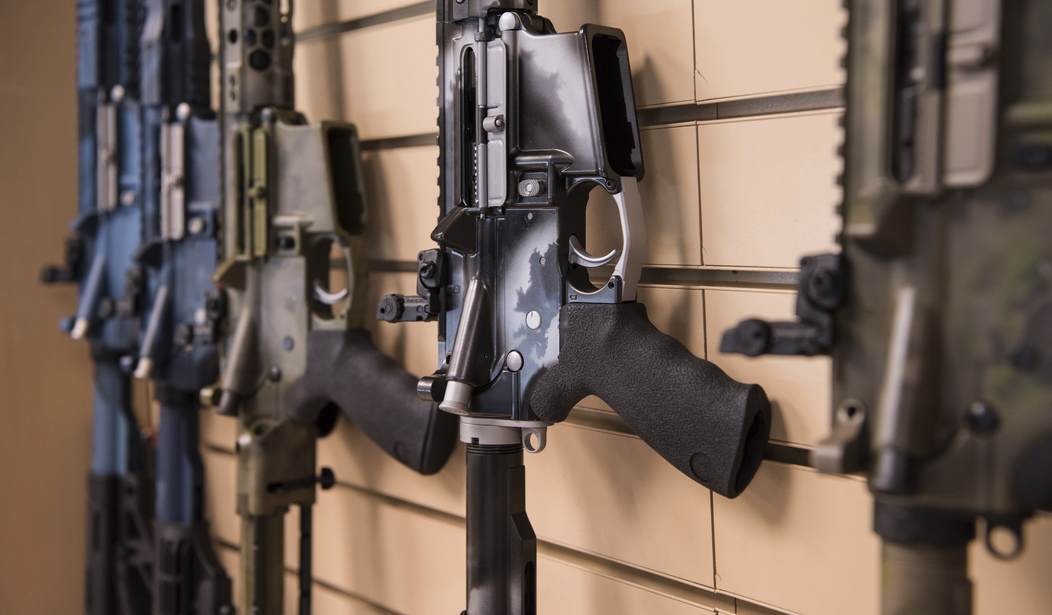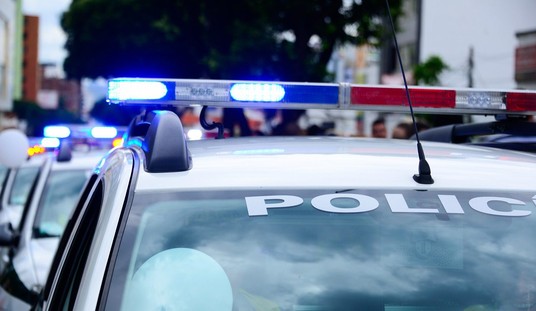The use of the word “initial” is important here, because it’s a signal that there are more executive orders on the way, but on Wednesday evening the White House released a list of “actions”, including several executive orders, aimed mostly at legal gun owners and imposing new restrictions on them via executive fiat.
Here’s the list as released by the White House:
The Justice Department, within 30 days, will issue a proposed rule to help stop the proliferation of “ghost guns.” We are experiencing a growing problem: criminals are buying kits containing nearly all of the components and directions for finishing a firearm within as little as 30 minutes and using these firearms to commit crimes. When these firearms turn up at crime scenes, they often cannot be traced by law enforcement due to the lack of a serial number. The Justice Department will issue a proposed rule to help stop the proliferation of these firearms.
This has been a primary target for gun control organizations over the past year or so, and while we don’t know specifically what the Justice Department will propose, they’re going to try to redefine the federal definition of a firearm as broadly as possible to require serialization and background checks be conducted on as many unfinished frames and receivers as possible.
The Justice Department, within 60 days, will issue a proposed rule to make clear when a device marketed as a stabilizing brace effectively turns a pistol into a short-barreled rifle subject to the requirements of the National Firearms Act. The alleged shooter in the Boulder tragedy last month appears to have used a pistol with an arm brace, which can make a firearm more stable and accurate while still being concealable.
The ATF’s been hinting at doing this since before Biden was sworn in, announcing and then withdrawing proposed “guidance” on pistol stabilizing braces that could have turned millions of legally-owned AR-15 style pistols into short barreled rifles that must be registered under the NFA, with a potential ten-year federal prison sentence for those who possess an unregistered SBR.
The Justice Department, within 60 days, will publish model “red flag” legislation for states. Red flag laws allow family members or law enforcement to petition for a court order temporarily barring people in crisis from accessing firearms if they present a danger to themselves or others. The President urges Congress to pass an appropriate national “red flag” law, as well as legislation incentivizing states to pass “red flag” laws of their own. In the interim, the Justice Department’s published model legislation will make it easier for states that want to adopt red flag laws to do so.
Biden can’t require states adopt Extreme Risk Protection Orders, but as his order mentions, he wants to incentivize states to do so, and you can bet that his model legislation is going to be short on due process and long on the denial of constitutional rights without even being charged or accused of a crime.
The Administration is investing in evidence-based community violence interventions. Community violence interventions are proven strategies for reducing gun violence in urban communities through tools other than incarceration. Because cities across the country are experiencing a historic spike in homicides, the Biden-Harris Administration is taking a number of steps to prioritize investment in community violence interventions.
- The American Jobs Plan proposes a $5 billion investment over eight years to support community violence intervention programs. A key part of community violence intervention strategies is to help connect individuals to job training and job opportunities.
- The U.S. Department of Health and Human Services is organizing a webinar and toolkit to educate states on how they can use Medicaid to reimburse certain community violence intervention programs, like Hospital-Based Violence Interventions.
- Five federal agencies are making changes to 26 different programs to direct vital support to community violence intervention programs as quickly as possible. These changes mean we can start increasing investments in community violence interventions as we wait on Congress to appropriate additional funds. Read more about these agency actions here.
As I’ve said before, I actually think many of these local programs aimed at violence prevention instead of gun control can do some good. If this were the only thing that Biden was proposing, I probably wouldn’t have any issues with it, though I don’t think funding should be a part of his bloated infrastructure bill and I’m concerned that Biden may try to slip in local gun control initiatives alongside actual violence prevention programs. It’s actually one of the only areas where Biden’s theoretically putting his focus on actually addressing violent crime, instead of trying to broaden pre-existing federal crimes to cover millions of legal gun owners.
The Justice Department will issue an annual report on firearms trafficking. In 2000, the Bureau of Alcohol, Tobacco, and Firearms (ATF) issued a report summarizing information regarding its investigations into firearms trafficking, which is one way firearms are diverted into the illegal market where they can easily end up in the hands of dangerous individuals. Since the report’s publication, states, local, and federal policymakers have relied on its data to better thwart the common channels of firearms trafficking. But there is good reason to believe that firearms trafficking channels have changed since 2000, for example due to the emergence of online sales and proliferation of “ghost guns.” The Justice Department will issue a new, comprehensive report on firearms trafficking and annual updates necessary to give policymakers the information they need to help address firearms trafficking today.
This doesn’t look like much on the surface, but expect the Justice Department to use the report to call for all kinds of new restrictions on legal gun owners, including the imposition of gun rationing schemes that limit lawful purchases to one-per-month.
The President will nominate David Chipman to serve as Director of the Bureau of Alcohol, Tobacco, and Firearms. ATF is the key agency enforcing our gun laws, and it needs a confirmed director in order to do the job to the best of its ability. But ATF has not had a confirmed director since 2015. Chipman served at ATF for 25 years and now works to advance commonsense gun safety laws.
Biden fails to mention that, while Chipman served in the ATF for 25-years, he’s also worked for the Michael Bloomberg-funded gun control group Mayors Against Illegal Guns before joining the gun control group Giffords as as senior policy advisor in 2016. For more about Chipman, including his recent mockery of new gun buyers in 2020, you can read my earlier report here.
We’ll have much more on Biden’s new executive orders here on the website and on Bearing Arms’ Cam & Co. on Thursday, when National Shooting Sports Foundation general counsel and senior vice president Larry Keane joins the program to talk about Biden’s “initial” executive orders and what gun owners and the firearms industry can expect if David Chipman does receive the 51 votes necessary to become confirmed as the next director of the BATFE.
Editor’s Note: Want to support Bearing Arms so we can tell the truth about Joe Biden and the Left’s radical gun control agenda? Join Bearing Arms VIP. Use the promo code GUNRIGHTS to get 25% off your membership.









Join the conversation as a VIP Member